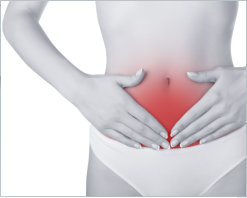[Home] [Irritable Bowel Syndrome] [Diarrhoea] [Digestive Disorders] [Coeliac Disease] [Colon Cleansing] [Constipation] [Digestive Health] [Bowel Problems] [Bad breath] [Candida albicans]





Natural remedies for digestive health
Diarrhoea and other digestive disorders can have serious consequences for health and, should you have any concerns, you should
always seek advice from your doctor or other qualified health professional.
However, below are listed some natural remedies which are thought to support digestive health naturally:
Probiotics
Good bacteria occur naturally in the body. High enough levels can help to crowd out harmful organisms, which would otherwise
cause illness or disease. Where the body is under strain (e.g. through illness, a digestive disorder or stress), or medication is taken
for a prolonged period (such as antibiotics), levels of these naturally-occuring friends can fall.
Many people choose to support their levels of friendly bacteria by taking a probiotic supplement. For instance, containing
lactobacillus acidophilus and bifidobacterium bifidum.
Probiotics are thought to support both efficient digestion and the immune system.
Prebiotics
Prebiotics are natural plant fibres that promote the growth of good bacteria in the gut - they are ‘food’ for good bacteria. An
example of a prebiotic is FOS (fructooligosaccharides). This can be obtained in supplement form, but is also found in Jerusalem
artichokes.
Digestive enzymes
Digestive enzymes play a crucial role in helping you to digest your food thoroughly, thereby preventing fermentation and
putrefaction in the gut. They occur naturally in fruit and vegetables and are also produced by the body (although our reserves are
finite and numbers start to decrease with age).
Many people choose to take a digestive enzymes supplement, to support efficient digestion. Particularly where they have existing
digestive complaints, have been ill or are elderly.
Colon cleansers
Colon cleansing is an excellent way to cleanse and detoxify the colon, removing deposits and debris that may have accumulated
over time as a result of (for example) poor digestion.
Colonic irrigation, enemas or colon cleansing supplements can all be of great help in loosening these deposits and making sure that
they are removed from the colon thoroughly.
Colon cleansing can also help to ensure that your digestive tract is free from harmful parasites, Candida and yeasts, which may be
present in parts of the colon or throughout its length.
Dietary fibre
High quality fibre from whole grains, fruit and vegetables can help to:
•
increase bowel transit time, thereby reducing any tendency towards constipation
•
help to lower cholesterol, triglyceride and toxin levels by binding with them in the gut, inhibiting their re-absorption (soluble
fibre)
•
slow the absorption of sugar into the bloodstream, thereby lowering the glycaemic index of the food eaten
•
slow the absorption of fat eaten, helping to keep you fuller for longer
•
increase the weight, bulk and softness of the stool (insoluble fibre)
Raw foods
Include raw foods in your daily diet. Raw fruit and vegetables are naturally rich in both enzymes and dietary fibre. The enzymes are
destroyed by heat. If most of your food is cooked, your body has to work harder to produce these enzymes.
Fermented foods and drinks
Fermentation is unwanted when it takes place in the stomach or intestine, as a result of incomplete digestion. However, when a
more complete fermentation takes place, before eating the food (as in sauerkraut, rejuvelac and the ripe form of seed sauce), there
are two benefits:
1.
digestion is much easier and more complete
2.
these foods and drinks help to re-populate the colon with friendly bacterial flora, which help to keep the colon clean and
healthy.


Diarrhoea and other digestive health problems




